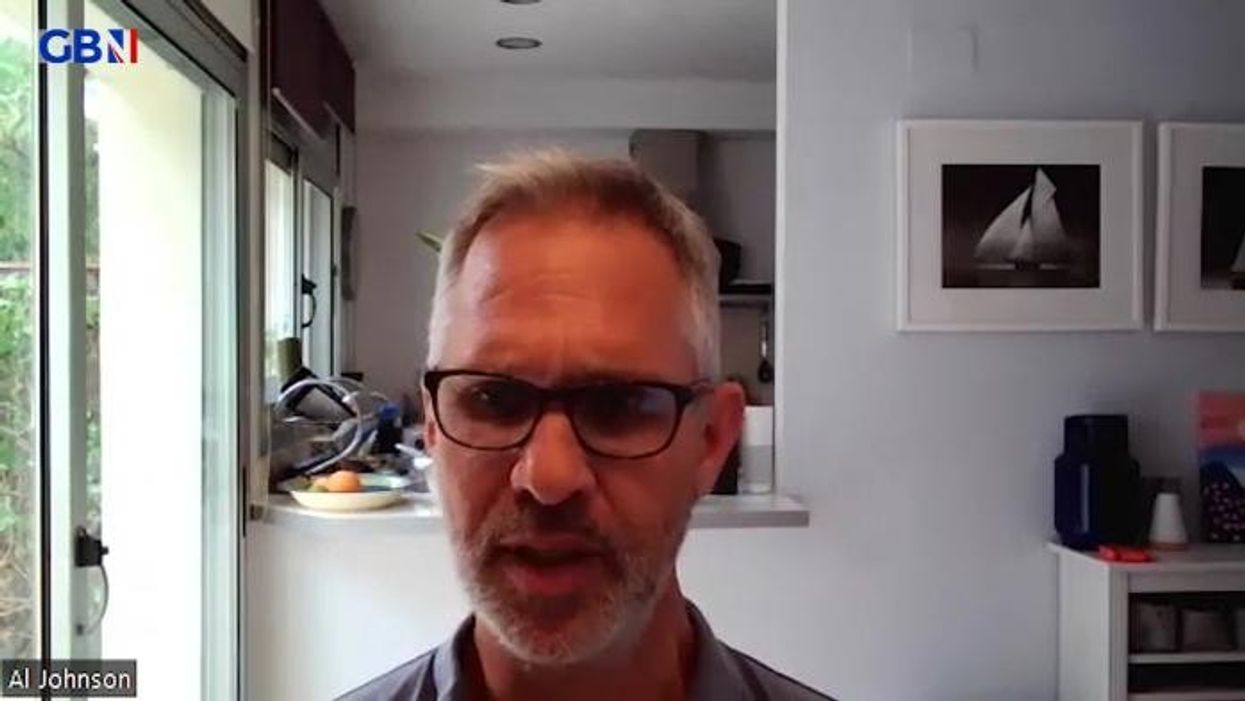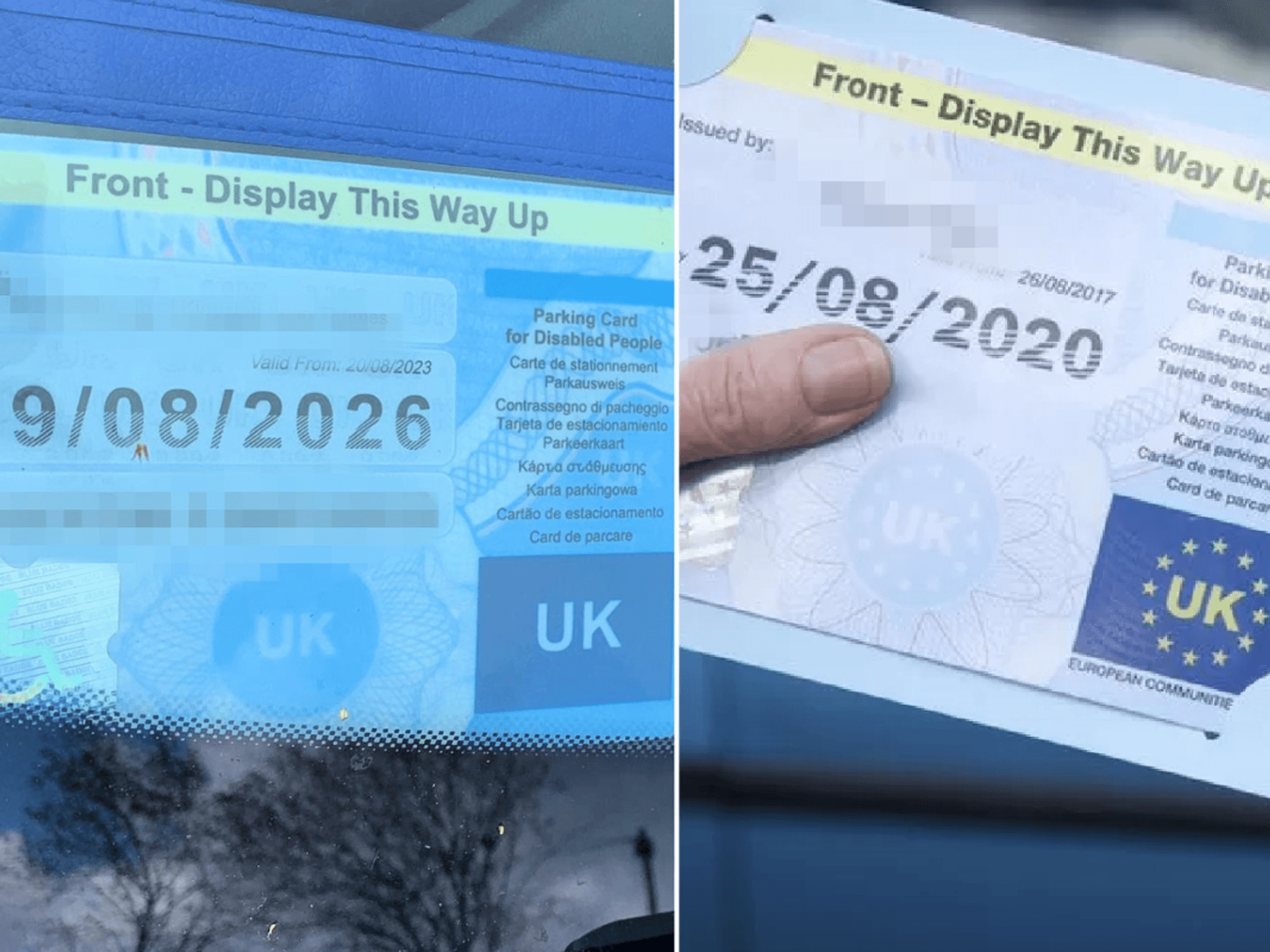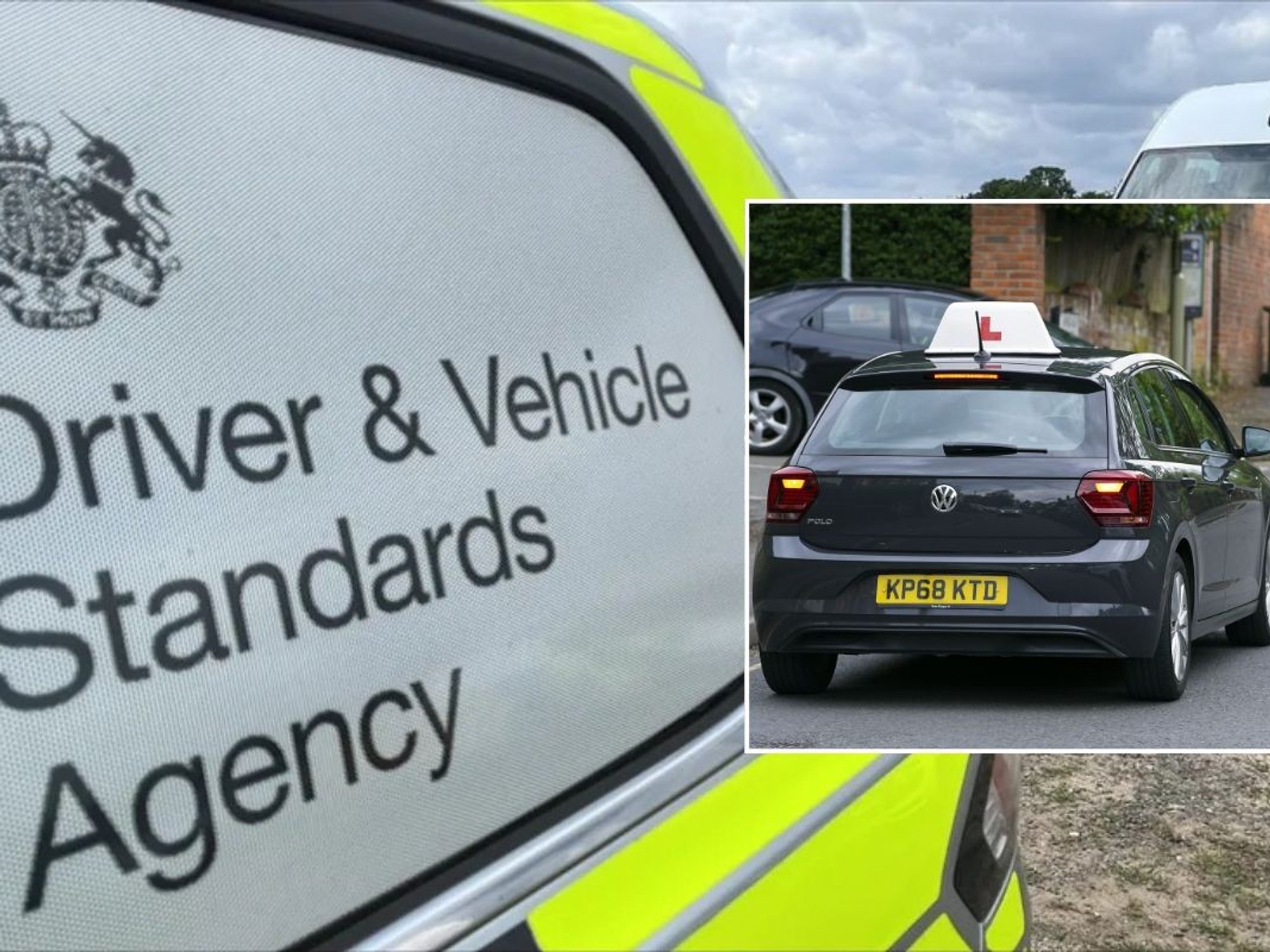GBN expat secrets - Spain: 'The relaxed attitude to the time bugged me at first - but they have really got it right'

GB News is talking to expats across Europe and the world who have exclusively revealed the best places to live, tips and tricks for moving abroad, and the potential pitfalls to avoid. This week, an expat in Spain shared why he moved and never looked back
Don't Miss
Most Read
Latest
Alastair Johnson relocated to Spain with his wife Alison in 2016 for a "one-year sabbatical" and, after eight years, he still calls it home.
The expat spoke exclusively to GB News about why he decided on this beautiful European country and why he plans on staying put, having completely fallen in love with the place.
Alastair is originally from South Africa, but lived in London for seven years and in Sydney for 15.
He and his wife both worked in big corporate jobs but, feeling "frazzled", they decided to take one year out to live in a brand new place with their seven-year-old son.
They had been to Spain a few times and spoke a little Spanish, so Sitges - just outside of Barcelona - felt like a good fit.
Alastair said: "I wanted to be somewhere by the sea and also somewhere with access to the rest of Europe." It also had a great English school for his young boy.
Alastair continued: "We arrived on April 1, 2016, so our one-year sabbatical has lasted eight years. It's a magical and beautiful place."
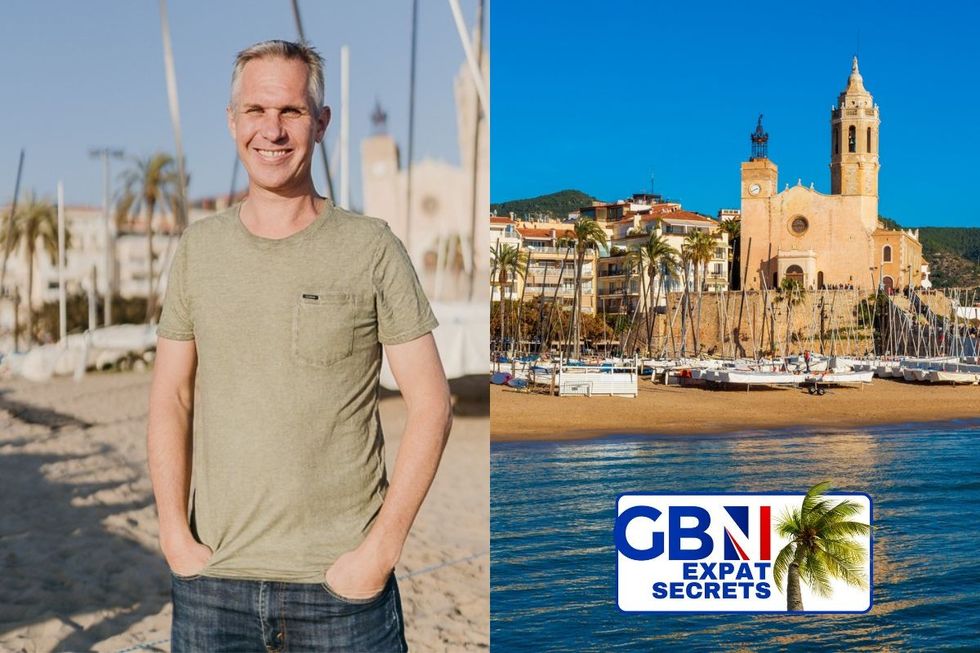
An expat in Spain spoke to GB News about why he loves his new life
|Alastair Johnson / GETTY IMAGES
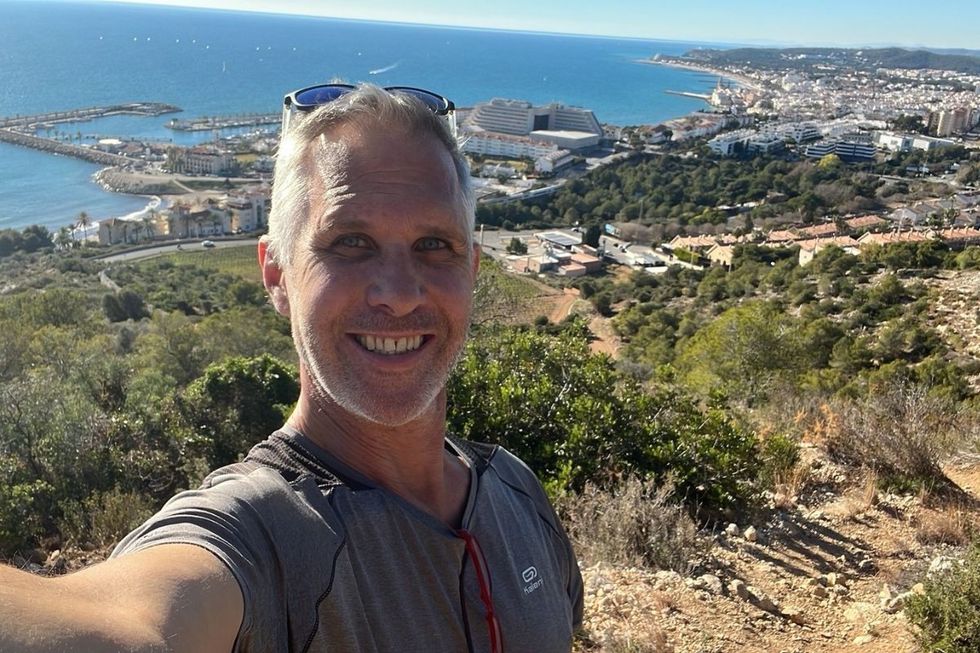
'It's a magical and beautiful place'
|Alastair Johnson
The expat said: "Sitges is on the Mediterranean coast and is home to around 30,000 people. And it's just 45 minutes away from Barcelona on the train.
"It used to be a little fishing village but then became an artsy satellite of Barcelona. Picasso and Dalí spent some time here.
"The Barcardi family are a Sitges family, so a lot of money came here and then it sort of grew."
Sitges' population is now around 30 per cent expat, with the city welcoming people from all over the world.
"It's got a really nice mix of locals and expats. There are a couple of international schools - two English schools and a French school in the surrounding area," Alastair said.
"It's a beautiful place and it's also got a reputation as Europe's gay capital - there's a fabulous Mardi Gras.
"There's a rugby pub which shows all the English football, and it has Barcelona on its doorstep - it's a great place to be an expat."
While Sitges is quieter than Barcelona, the expat did warn that it gets "rammed" in August - that's when he and his family go away for a few weeks.
The best thing about living in Spain is the people he's surrounded with. Alastair said: "The Spanish people are delightful, and they have a different attitude to life.
"I've lived in London, I've lived in Sydney and other big cities, and even in Barcelona and Madrid, there's a different feel to it. People take time out to enjoy food, they take time out to enjoy the company of friends and family.
"If you go for a walk on a Sunday, you'll see big family groups walking together, lots of generations. Grandkids are pushing their great-grandmothers in wheelchairs."
Spain has a slower pace of life than what Alastair has always experienced. He said: "It took us about six months to slow down from that sort of frenetic life pace that we were used to.
"I'd sit down in a restaurant and think, 'Why don't I have a menu yet?'. It would really annoy me. But then I realised that I was staring out over the Mediterranean, and if it takes five minutes, so what? You just have to learn to throttle down. And then the longer we stay here, the more I think these guys really have got it right."
When he first moved he could not understand why the local garden centre wasn't open on a Sunday - everybody gardens on the weekend, "it doesn't make any sense".
"But then you realise he and his staff go and spend time with their families on Sundays, and it actually makes brilliant sense. They've got it absolutely right."
Alastair also praised Spanish cuisine, calling it "cheap and incredible". He added: "And the produce you can buy at the market is just so good, even in the supermarkets."
As well as the people and the food, Alastair also has a lot of admiration for Spain's infrastructure. "It's so good - we can be in Madrid in a couple of hours," he said.
He added: "We can fly from Barcelona to anywhere in Europe for next to nothing. I can go to the UK to watch a rugby game with a mate in no time.
"We can drive to France for lunch. It's two and a bit hours from where we are now to the French border."
Alastair and Alison's business Moving to Spain was born out of their relocation, and now they help others who make the exciting move.
He said: "There's not as many opportunities for big corporate jobs, and the wages are lower than in Sydney and the UK, so a lot of people here start a business.
"We tried a few things and then found that what we knew best was moving to Spain. That's why we built the business for people exactly like us so they don't make all the mistakes that we made - because it's not an easy process sometimes."
A big mistake expats in Spain can fall into is assuming that everything is the same as it is at home.
Alastair said: "It's things like siesta and the fact that the garden centre is closed on a Sunday, and that you can't go to the pharmacy between 2pm and 5pm.
"It's little cultural things like understanding that in Spain, people queue differently. People don't line up - they just scatter and you have to ask who is last."
Bigger mistakes Alastair made included engaging a "bad" lawyer and accountant. He admitted: "The lawyer really cost us in terms of time, energy, worry, and having to go backwards and forwards to meetings."
He revealed that "the Spanish bureaucracy is filled with wonderful people who are trying to help you, but the systems themselves are slow and not flexible".
Finding the right people to work with is key when you're making a move overseas, and Alastair gave an important tip for finding them.
He said: "If you're moving and you want to find a lawyer, find people who have actually used that lawyer.
"Don't trust a pretty website - people spend a lot of money on marketing and less on law."
Expats can also consult Trustpilot, or join Facebook groups for expats to find the right information.
He added: "Make 100 per cent sure that you agree on the services up front, and that you're very clear on how their billing cycle is going to work. What are you actually paying for? What do you get?"
Asked whether Britons must learn to speak Spanish before they move to Spain, Alastair suggested that it depends on where you're going and what you're looking for out of the experience.
He said: "So I've got a very good friend who has lived here for 11 years. He's from Ireland. And he can order a beer - that's the extent of his Spanish.
"He does his business in English, and we live in a town with lots of expats who speak English. And lots of the Spanish people here speak English as well, because it's quite a cosmopolitan little town we live in. It works great for him - he's happy as a clam."
However, while it does work, Alastair wouldn't necessarily recommend this. "I do think that life is much easier here if you speak some Spanish. It's the little things like making a connection with your neighbours," he said.
A little knowledge of Spanish is important in emergencies too. When Alastair found himself in a car accident, his ability to speak the language proved invaluable when the first responders arrived on the scene.
He concluded: "So I think you can get by with no Spanish. But I would certainly say the more Spanish you speak, the nicer your life here is, and the more engaged you're going to be with the community."
LATEST DEVELOPMENTS

Sitges is on the doorstep of Barcelona
| GETTY IMAGESAlastair recommends attending in-person classes to learn Spanish. It's not only a great way to immerse yourself in the language, it's an easy opportunity to make fast friends with people in the same boat as you.
Indeed, he said: "We've still got some great friends that we met in our Spanish classes that we hang out with and see to this day."
Duolingo is also "great for building vocabulary", and italki is a fantastic marketplace for online tutors.
The expat said: "I chat to a guy in Extremadura now - he's a lovely guy who used to work for the UN - and we sit and have a beer together once a week on Tuesdays at 7pm. We sit and have a beer for an hour and talk. He'll correct my grammar or phrasing or give me colloquialisms, it's a great platform."
But while Alastair and his family have fallen in love with Spain, moving to a new place can be a major culture shock, and it's common to struggle to get to grips with new customs.
Alastair had to get used to a new kind of relationship with his landlord, one that he had not experienced in any other country he had lived in.
He said: "In the first place we lived, we had a really negative experience with our landlord. He told us we hadn't taken care of the place and actually, we had.
"It's a narrative that you'll often hear here - that landlords are terrible."
To avoid a bad experience, Alastair advised getting savvy: "You've got to get to know your landlord. Be very clear about your expectations. What is what? What am I responsible for? What are you responsible for? How does it work? You need to communicate with your landlord."
Alastair wasn't used to this in the UK - in the entirety of his time renting in London over seven years he never once spoke to a landlord.
"I always dealt with the estate agent," he said, "that's the person I went and found the place from and then if I had an issue I just raised it with them".
The expat added: "I never actually met half my landlords in the UK. But here, I'm on a constant WhatsApp chat with my landlord."
Alastair also had to get used to a far more relaxed attitude towards the time.
He explained: "It's not like German efficiency. If a guy's coming to fix the blinds and he says he'll be there at 10am, he might arrive at 10:30am. If the pharmacy is meant to open at half past, it might open at 20 to. It's the little things.
"There's a slower pace of life here and there's less urgency. And it really bugged both myself and my wife when we first arrived here, after living in the UK and in Australia where things were more urgent."
Speaking to people thinking of making the move to Spain, Alastair advised: "If these sorts of things annoy you, this might not be the place for you."
Essentially, Alastair's main piece of advice for expats in Spain is to try to relax. He said: "If you try to fight against the bureaucracy or shout at the waiter, nothing good will come of it. You have to be a bit more chilled out.
"I think that you've got to accept that part of the laidback Mediterranean lifestyle is the laidback Mediterranean lifestyle. That's what we're here for."
Finally, Alastair advised expats to find the right fit for them when it comes to location. He said: "There are 47 million people there, and it's around the size of Texas. There are some real differences depending on where you go.
"The hustle and bustle of Madrid might be right up your alley, or somewhere really chilled like Alicante might be more for you."
Moving to Spain
What you need to know
Many Britons will be excited about potentially starting a new life in Spain. However, there are some things they must be aware of, such as how to procure accommodation and when you need to apply for a Spanish driver's license.
The Foreign, Commonwealth and Development Office has guidance on buying and renting accommodation in Spain on GOV.UK. This includes very important legal advice on Spanish notaries, British estate agents, promoters and lawyers, gestors and property disputes, plus guidance on mortgages and tax. Ensure you consult the Purchaser's checklist.
The FCDO said: "We strongly recommended that you choose an independent lawyer who specialises in Spanish land law (urbanismo). Independent means that they work on your behalf only and are not also looking after the interests of the agent or developer.
"The Spanish property conveyancing system is different to the UK system so you should ensure that those involved in the transaction are qualified and experienced in Spain.
"Use extreme caution if an estate agent, promoter or lawyer urges you to cut corners to save money or time."
The FCDO has also issued guidance on driving in Spain, urging Britons to read the necessary information on road travel in Spain and driving in the EU.
The FCDO said: "You cannot renew or replace your UK, Gibraltar, Jersey, Guernsey or Isle of Man driving licence if you live in Spain.
"If you have one of these licences, you can use it to drive for up to six months after becoming a resident in Spain. To continue driving after this, you must apply for a Spanish driving licence.
"The process for obtaining a Spanish licence depends on whether you have a UK, Gibraltar, Jersey, Guernsey or Isle of Man licence.
"You cannot use an International Driving Permit (IDP) instead of a Spanish licence."
While English is widely spoken in Spain - particularly in places like Marbella - Britons will likely have a better experience if they learn Spanish. Seek out Spanish conversation courses once you get to Spain, or get ahead of the game and take a course in your local area. Language-learning apps can also help with everyday vocabulary, as can watching TV in Spanish with English subtitles turned on. Alternatively, grab some children's books written in Spanish and make your way through these.
Best places for retirees
- Marbella
- Alicante
- Mijas
- Malaga City
- Costa Brava
Why Britons choose to live in Spain
- The Costa del Sol enjoys over 325 days of sunshine per year providing lots of enjoyment for British expats - think sun, sea, sand and sangria
- English is widely spoken, especially in places like Marbella
- Huge expat communities - meet people from all over the world
- Diverse locations - there's something for everyone
- Laidback lifestyle and slower pace of life
- Spaniards are friendly and welcome Britons with open arms
- Lower cost of living than in the UK
- Delicious cuisine
Possible pitfalls
- Unrealistic expectations: While Spain can be an idyllic destination, no place is perfect
- Language barrier
- Bureaucracy can be laborious
- Difficulty receiving post
- It can get cold: If you're expecting scorching temperatures every day you may be shocked - Spain often reaches freezing temperatures during the winter
- Noisy nightlife can be disruptive, many party areas
- Siesta culture means companies and stores may be closed for several hours in the middle of the day, which could be inconvenient


